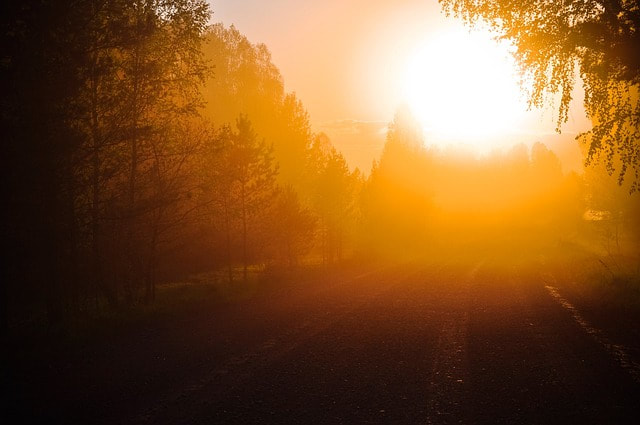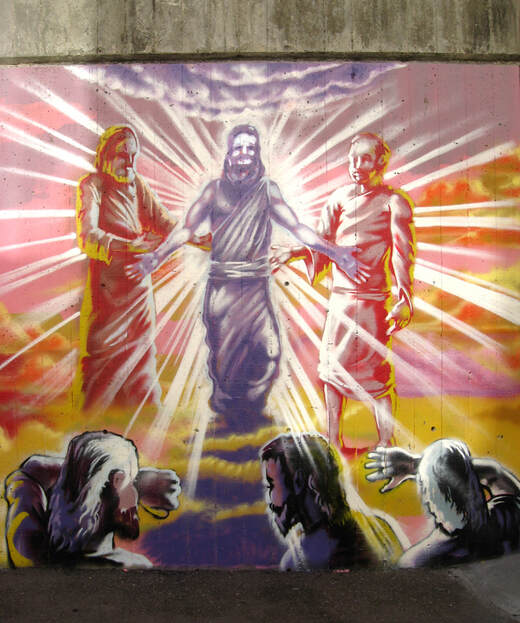|
A musical invitation to follow Jesus — to transform — welcomes you this Transfiguration Sunday morning in William Bolcom's jazz-influenced setting of "Jesus Calls Us; O'er the Tumult." The Chancel Choir sings the gospel tune "This Little Light of Mine" in a spirited arrangement by Steve Milloy, a former colleague of mine at the Cincinnati College-Conservatory of Music. The organ proclaims "Deo Gracias" (Latin for Thanks Be to God) in a majestic setting by Canadian-British composer Healey Willan.
0 Comments
Breathe on me, Breath of God, fill me with life anew that I may love the way you love and do what you would do. -Edwin Hatch, 1880 At the Prelude, the Plymouth Ringers offer "New Life" by Matt Johnson, a piece celebrating the birth of his newborn son. Cellist Lucas Jackson joins the handbells in this joyous work. The Chancel Choir with flutist Aaron McGrew present "Celtic Communion" by Mark Hayes incorporating the well-known Gaelic tune "Bunessan" (commonly sung to the text "Morning Has Broken.") A fanfare on the hymn tune "Gopsal", the melody of which is attributed to composer G.F. Handel, closes worship in an exciting and concise setting by renowned British composer David Willcocks.
At 9:00 a.m., songs by Pete Seeger and Jesse Colin Young are offered by guitarist/vocalist Bill DeMarco. Bassist Peter Strening and cantor Lucas Jackson also contribute their talents to the morning's songs of community, praise and healing.
At 11:00 a.m., a contemporary setting of the hymn "Beautiful Savior" by Gerre Hancock begins the worship hour. The Chancel Choir sings the spiritual "Hold Out Your Light" in an elegant arrangement by Rollo Dilworth. A grand setting of the Welsh hymn tune "Hyfrydol" (the melody of our opening hymn "Alleluia! Gracious Jesus!") by Ralph Vaughan Williams closes the worship hour. We are invited to heed the call of the divine this Sunday as we continue the journey through the Epiphany season — the season of Light.
At the 9:00 a.m. service, an eclectic blend of musical genres will be presented including gospel, jazz, rock, a selection from the organ, and a Celtic tune played by violinist Harmony Tucker. At the 11:00 a.m. service, worship begins with a chorale prelude in the Neo-Baroque style by 20th century composer Helmut Walcha. The Chancel Choir sings "Let in the Light" in an Epiphany anthem by Alfred Fedak. The service concludes with the jaunty and aptly titled "Postlude in G" by Edward Wetherill. On this Youth Sunday, the service begins and concludes with two popular spiritual songs offered by double bassist Ovella Huddleston and violist Mateo Dunigan-AtLee. The Chancel Choir invites us to imagine a world living in harmony and peace in the well-known John Lennon classic. Rev. Kimberly Salico-Diehl joins us in the chancel as well in this intergenerational service for all ages.
At 9:00 a.m., a Celtic spirit informs the musical offerings for our early morning worship service. Violinist Harmony Tucker joins us for songs of cheer and haunting beauty.
At 11:00 a.m., the organ speaks in the spirit of the Baroque era with two 16th century hymn tune settings. At the Prelude, 20th century "Neo-Baroque" composer Helmut Walcha offers a delightfully eccentric reading of the Epiphany hymn "How Brightly Shines the Morning Star." At the Postlude, we go to "the source" with Johann Sebastian Bach's energetic and joyful chorale prelude on the new year carol "In Thee Is Gladness." Lastly, at the Offertory, the Chancel Choir sings the celebratory traditional Caribbean tune "Halle, Halle, Halle" arranged by Hal Hopson with unofficial resident djembist Rev. Hal Chorpenning and other aspiring percussionists. At 9:00, the sounds of freedom, justice and big dreaming are expressed in the stylings of American folk music and jazz. Vocalist/guitarist Bill DeMarco, cantor Lucas Jackson, and bassist Peter Strening provide these inspired sounds in early morning worship.
At 11:00, the Chancel Choir sings of the sanctity of each and every human life in the gospel-tinged "Child of God" by Mark Miller. Staff Singers Alex Young and Lucas Jackson are featured soloists in this rousing anthem of equality and social justice. From the organ come contemporary readings of two American gospel tunes. At the Prelude, the highly chromatic and lush setting of "Sweet Hour of Prayer" by William Bolcom from his "Gospel Preludes." At the Postlude, an energetic arrangement of the spiritual "Every Time I Feel the Spirit" by Richard Elliott, Principal Organist for the Mormon Tabernacle Choir. Accessible and exciting, artful elements of 20th century French organ repertoire make this work a memorable take on this simple gospel tune. As we gather —in-person!—this Transfiguration Sunday, we meditate on the transformative power of the Light of Christ and the call to share our own little light with the world.
At the 9:00 service, we welcome the sun in the return of our eclectic early morning worship hour. Bassist Peter Strening and cantor Lucas Jackson join us. At the 11:00 service, the organ greets you with an affirmation in J.S. Bach's chorale prelude setting of "Dearest Jesus, We Are Here." Indeed, we are! The service closes triumphantly in a joyous moment of brevity with "Fanfare on 'Gopsal'" by David Willcocks. The Handel-composed hymn tune is commonly associated with the text "Rejoice, the Lord is King", a statement of Christ's reign. The Chancel Choir also returns with an offering for this Last Sunday of the Epiphany. Let us talents and tongues employ, reaching out with a shout of joy: bread is broken, the wine is poured, Christ is spoken and seen and heard. Jesus lives again, earth can breathe again, pass the Word around: loaves abound! - from the New Century Hymnal # 347, Fred Kaan (alt.)  By Anonymous - Open Clipart — Bread and Wine, CC0, https://commons.wikimedia.org/w/index.php?curid=734325 By Anonymous - Open Clipart — Bread and Wine, CC0, https://commons.wikimedia.org/w/index.php?curid=734325 We gather once again in virtual worship at this Sunday morning's prerecorded service. Separated by time and space — ever in communion. The esoteric strains of "Communion" by Louis Vierne, famed titular organist of Notre Dame Cathedral from 1900-1937, begins worship with a meditation on the mysteries of the Eucharist. A virtual offering from members of the Chancel Choir in "Let Us Talents and Tongues Employ" greets you during the Musical Offering. Can you hear the steel drums in this Jamaican folk tune praising our nourishment at the table? I believe you will. A chorale-inspired voluntary from a member of the famous Wesley line of theologians and musicians, Samuel Sebastian Wesley, in "Choral Song" closes worship on a particularly jaunty note. Quite. And please join us for the last 7:00 p.m. Vespers service next Wednesday, February 10: a service of meditative chants by composer and UCC minister Kathy Eddy. Violinist Abigail Morgan joins cantor Blair Carpenter and I in this nurturing midweek oasis for a troubled time. A space of comfort and peace. And hope. Wake up to a "jig" in an ode to the Baroque gigue dance in Dietrich Buxtehude's "Fugue in C Major." A song of unity and connection in "Blessed Be the Tie That Binds," rung by the Plymouth Ringers, greets you after that morning cup of joe. A joyful toccata quasi-improvisation on the hymn tune "Lasst uns erfreuen" by Brenda Portman brings us to the virtual coffee hour (more coffee!) See you at the annual meeting. |
Details
|









 RSS Feed
RSS Feed